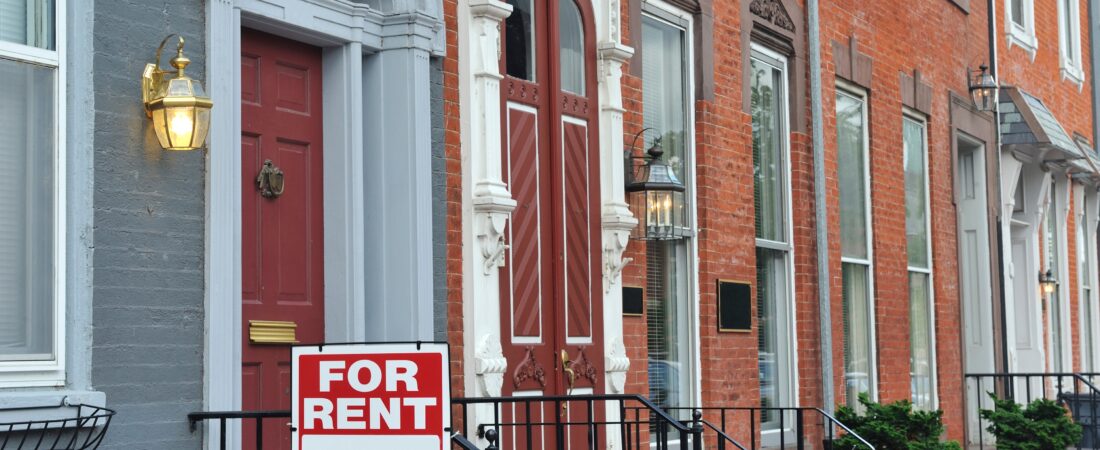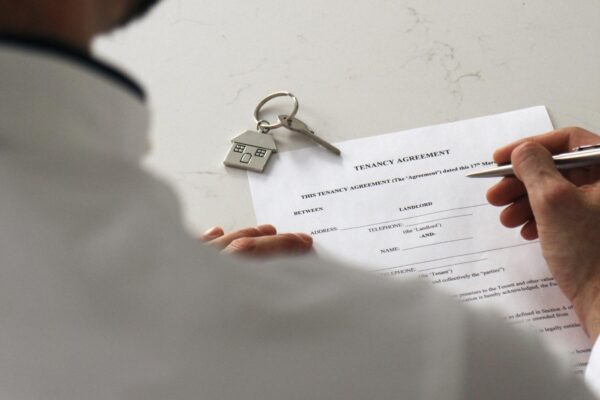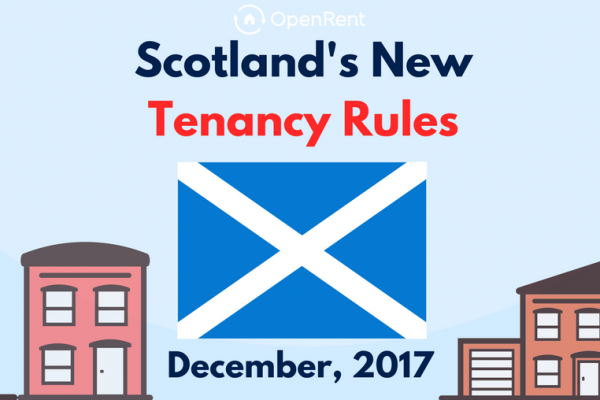The government has confirmed that the commencement date for the first stage of the Renters’ Rights Act will be 1st May 2026. The Act, which received Royal Assent in October, marks the most significant reform of the private rented sector in England since the Housing Act 1988.
With a solid plan now set in motion, landlords and tenants have a clear timeline for when the initial changes will take effect, while further provisions will follow in later stages.
Below, we break down the key points and what these early changes will mean in practice.
- When will the Renters’ Rights Bill become law?
- When will implementation of the Renters’ Rights Act begin?
- A quick overview of the Renters’ Rights Act
- Key changes coming under the Renters’ Rights Act
We’ve always helped landlords stay compliant, and this time is no different. Trust Rent Now to get your next tenancy right from the start. Get Started With Rent Now
When will the Renters’ Rights Bill become law?
The Renters’ Rights Bill received Royal Assent on 27th October 2025 and is now officially the Renters’ Rights Act.
When will implementation of the Renters’ Rights Act begin?
The government has now confirmed that the first set of changes under the Renters’ Rights Act will take effect on 1st May 2026. Not all provisions will commence at once, but several major reforms will begin on this date.
From 1 May, the following changes will apply:
- Section 21 ‘no-fault’ evictions will be abolished
- Fixed-term tenancies will end, with most tenancies becoming periodic by default
- Restrictions on rent in advance will come into force
It will also become illegal for landlords to:
- Increase rent more than once per year
- Encourage rental bidding wars
- Discriminate against tenants who receive benefits or who have children
Local councils will gain new enforcement powers, with fines ranging from £7,000 to £40,000 for breaches.
We’ll continue to update this article as remaining guidance and documentation are released.
A quick overview of the Renters’ Rights Act
Here’s a rundown of the main changes the Renters’ Rights Act will bring for landlords and tenants:
- The end of Section 21: The Act will abolish “no-fault” Section 21 evictions. All assured tenancies will automatically become periodic, giving tenants greater security while still allowing landlords to manage their properties. The new system will roll out in a single stage, so tenants get that security from day one.
- Updated possession rules: Landlords will need to rely on the revised Section 8 grounds to regain possession, which include new and amended reasons. Notice periods will vary depending on the ground, ranging from two weeks to four months.
- Fair rent increases: Tenants will have the ability to challenge rents above market rate. Landlords can still propose market-level rent increases, but disputes may be decided by an independent tribunal.
- Private Rented Sector Landlord Ombudsman: A new ombudsman service will handle tenant complaints and provide binding resolutions.
- Private Rented Sector Database: Landlords will be required to register. The database is intended to support compliance monitoring and enforcement, and certain possession grounds will only be available to registered landlords.
- Pets in rental properties: Tenants (not applicants) will gain the right to be able to request permission to keep a pet. Landlords will need to consider requests and can require pet insurance.
- Safer homes: The Act extends the Decent Homes Standard to the private rented sector. It also applies Awaab’s Law to set timescales for landlords to address serious hazards.
- Anti-discrimination measures: Landlords will be prohibited from refusing prospective tenants on the basis of benefits or children.
- No rental bidding: It will be illegal to ask for or accept rent above the advertised rate. Landlords must publish the asking rent, and any offers above that will be unlawful.
- Stronger enforcement: Local authorities will gain additional powers, including higher civil penalties, investigatory tools, and reporting requirements, helping to ensure compliance across the sector.
- Tougher penalties for landlords who break the rules: Rent repayment orders will apply to superior landlords, with maximum penalties doubled and repeat offenders required to repay the full amount.
Key changes coming under the Renters’ Rights Act
Below, we’ve highlighted some of the biggest changes that the Renters’ Rights Act proposes for the private rented sector. These are important updates that could affect how landlords and tenants operate once they come into effect.
1. The end of fixed-term tenancies
One of the main changes under the Renters’ Rights Act is the planned shift from fixed-term assured shorthold tenancies to periodic agreements.
From 1st May 2026, all new and existing tenancies would become periodic, with rent periods capped at one month. There will be no minimum term for either new or existing agreements.
Tenants would gain the right to end their tenancy at any time by giving two months’ notice in writing.
The Act also proposes that landlords cannot request or accept rent from tenants, guarantors, or anyone acting on their behalf until the tenancy agreement has been signed by both parties.
Landlords will also be banned from inviting applicants to offer higher rent or accepting rent payments above the advertised amount, which must be clearly stated in writing. Breaching these rules could result in fines of up to £7,000.
After the agreement is signed, landlords can request and accept up to one calendar month’s rent in advance. This has raised concerns, particularly among landlords and tenants involved in student lettings, where paying rent in advance is a common practice.
You might also be interested in…
- How to Conduct a Property Viewing Online
- When Will Section 21 Be Scrapped?
- 5 Mistakes Tenants Make in Their Property Enquiries (and How to Fix Them)
- What Tenants Need to Know About the Renters’ Rights Act
- 6 Most-Viewed Properties of the Month
2. Abolition of Section 21 evictions
One of the main changes is the planned end of Section 21 ‘no-fault’ evictions, which currently allow landlords to end a tenancy without giving a reason.
From 1st May 2026, Section 21 will be abolished for both new and existing tenancies. This approach aims to avoid a two-tier system and give tenants security from day one.
Landlords can continue to serve Section 21 notices up until 30th April 2026. To ensure your notice is correct and legally valid, use our free Section 21 notice-serving tool.
3. New and amended Section 8 grounds for possession
With the end of Section 21, landlords will need to rely on Section 8 if they want to regain possession of their properties. Unlike Section 21, a Section 8 notice requires landlords to provide a reason for seeking possession.
To cover the full range of situations where a landlord might need their property back, the Renters’ Rights Act proposes updating some existing grounds and introducing new ones.
One of the new grounds includes a mandatory ground where the landlord “intends to sell” the property. Another is where the tenancy must end because it would be unlawful to continue due to enforcement action against the landlord.
The updated and new grounds, along with their required notice periods, will be available for landlords to use from the commencement date (1st May 2026).
For now, current rules still apply. You can continue to serve Section 21 notices where appropriate, and Section 8 notices remain valid under existing grounds.
4. New rules for rent increases
Under the Renters’ Rights Act, landlords will only be able to increase rent once per year using the formal Section 13 process. This means serving tenants with Form 4, which must be downloaded from the government website, and giving at least two months’ notice (double the current requirement).
Any existing rent review clauses in tenancy agreements will no longer be valid. Tenants will also gain the right to challenge the proposed rent at the First-tier Tribunal, free of charge.
If the tribunal determines the proposed rent is above market value, it can reduce the increase or delay it by up to two additional months in cases of undue hardship.
Given the process and potential tribunal backlogs, a rent increase could take several months from the date of notice to come into effect.
5. The end of blanket bans
The Act will prevent landlords from imposing blanket bans on renting to people receiving benefits or with children. This change will apply across England, Scotland, and Wales.
The restrictions may also extend to lease agreements, mortgages, and insurance contracts, meaning clauses that seek to exclude tenants based on benefits or children could be invalid.
Landlords can still consider affordability when assessing applicants, taking an individual’s income into account to determine whether they can reasonably pay the rent.
We read the small print so you don’t have to. Trust Rent Now to be fully prepared for the Renters’ Rights Act. Let With Confidence
6. New right for tenants to seek consent for pets
Under the Renters’ Rights Act, tenants (not applicants) will have the right to request permission to keep a pet. Landlords can only refuse if they have a valid reason, such as a restriction in a superior lease.
For more details on how the Act proposes to change tenants’ rights regarding pets in rental properties, take a look at our guide here.
7. Private rented sector ombudsman and database
All private landlords in England with assured tenancies will be required to join a new private sector ombudsman.
The ombudsman will be free for prospective, current, and former tenants to use, offering an alternative to council complaints or taking legal action. It will be introduced “as soon as possible” after Royal Assent, with landlords given notice of the start date and sufficient time to make arrangements.
The First-tier Tribunal will be able to issue rent repayment orders for repeated breaches of the ombudsman’s rulings, and landlords will be legally required to comply.
In addition, landlords must register themselves and their properties on a new private rented sector database. Failing to register before advertising or letting a property can lead to civil penalties, and in most cases, prevent landlords from obtaining possession orders.
A registration fee will apply, but the government has confirmed it will be “reasonable” and offer “good value”.
8. Extension of Awaab’s Law to the private rented sector
Awaab’s Law was introduced following the tragic death of Awaab Ishak in 2020, caused by mould in his social housing flat. The law requires social housing providers to address serious hazards within a set timeframe.
The Renters’ Rights Act looks at extending similar responsibilities to the private rented sector, though the exact details for private landlords have not yet been confirmed.
It’s worth noting that Awaab’s Law has not yet been fully implemented in social housing. At the time of the 2024 general election, the rules were still under consultation.
Moreover, private landlords may soon face greater responsibilities to ensure their properties meet a reformed Decent Homes Standard and are free from serious hazards. A government consultation on these proposals closed on 12th September 2025, and the results are yet to be published.
Landlords who fail to address serious hazards could face fines of up to £7,000 once the rules are finalised.



